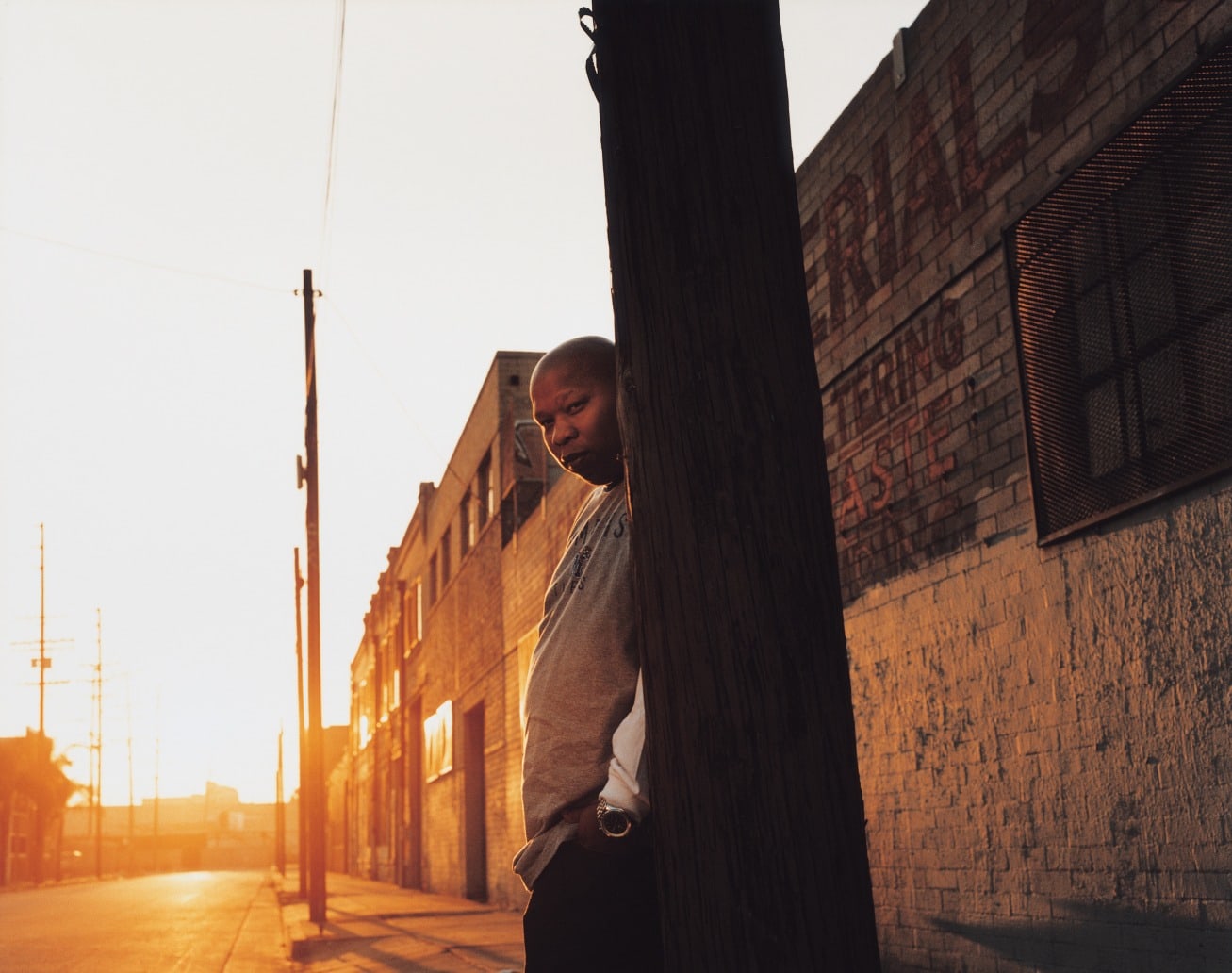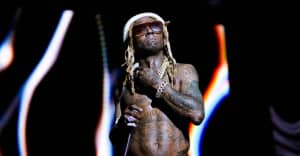 Jonathan Mannion for The FADER, 2005.
Jonathan Mannion for The FADER, 2005.
Lil Wayne didn’t have much of a childhood, and for good reason: he spent most of it cranking out hits. During his preteen years, Wayne’s stepfather introduced him to local New Orleans producer Mannie Fresh after Wayne had showed a serious passion for becoming a rapper. Just three years later, in 1997 at the age of 15, Wayne inked a deal with Cash Money Records. It was during those early days that Fresh remembers Lil Wayne as a “kid genius,” a title he attributes to Wayne’s cutting intellect and clever wordplay.
Fully solidified as a member of the Cash Money roster, Lil Wayne joined the label’s core group, the Hot Boys, rapping alongside members Juvenile, B.G., and Turk. To his own magnanimous credit, Fresh produced all of the singles and albums for Cash Money artists. Which is to say: he worked closely with Wayne on every piece of music he wrote and recorded during that time. In addition to producing countless chart-topping hits, Fresh also witnessed the growth of a teenage Wayne and helped to foster his emotional and creative evolution.
In an interview with The FADER, Mannie Fresh spoke about what Wayne was like in the early days before he became a rap icon. He talked about his undeniable brilliance, having to grow up hard and fast as a teenager in New Orleans, and Wayne’s ultimate drive to always try and out-rap anyone on a track.
MANNIE FRESH: When I first met Wayne he was somewhere around 12 or 13 years old — he wasn't actually getting signed to Cash Money. His parents didn’t want him to rap at all but that was his thing. His dad was this real street-savvy dude that told me, “Bro, I’ll let him rap but as long as he gets his grades up to par.” I think what they had in their minds was, “We’re gonna put some pressure on you and that’s gonna make you not wanna do it.” After our first introduction, I was thinking That's not going to really work for him [Wayne] because it’s obvious that school work is not hard for him. You could tell he was a very intelligent kid. He was a kid genius. It wasn’t nothing for him to do homework. I thought rap was something that Wayne needed to do to channel some of the things that he wasn’t learning in school and some of the things that he wanted to say.
Before the Hot Boys, the first group that he was in was called The B.G.’z and the members were just B.G. and Wayne. Juvenile wasn’t even signed and Turk was nowhere in sight. The reason why B.G.’s name just became just B.G. was because at first, Wayne’s parents took him out the group because of some outside issues with bad behavior. I guess he must’ve complained so much to his mom and dad that they let him come back six months to a year later. He was officially on Cash Money, he was 15. The deal was, his mom told him he could rap but he couldn’t say curse words. We wondered, “How you goin’ fit in with this shit? This is the street.” Early on, Wayne's genius was that he never cursed but he still got the message across and his verses were just as hard as B.G.’s. B.G. was already street-savvy. The dude knew everything that you could know about breaking down drugs, guns, and all of that. Wayne sort’ve had the understanding of it from being around us but, it was like, So how do you talk about this without using curse words or without saying certain things?
The first time I heard him rap I thought, This little kid is phenomenal. He did the homework on everything. If we were talking about something, Wayne went and researched it. If we said on the name of a gun was a Serafina, he was a kid who went home, looked it up, and came back and knew everything about it. So when he rapped about it, he knew stuff that we didn’t even know. While we’re saying the raps, it would be a weird moment in the studio where’d he be like, “Oh that gun was made in Germany in 1947 and so and so used it.” If he didn't know it, he’d figure it out so he could talk about it on a record.
A lot of them [Hot Boys] didn’t know what a rhyme scheme was but Wayne did so he was teaching B.G. some things. He’d be like, “Okay bro, you could actually have the first word rhyme and then at the end of another line you could have another, rhyme. It doesn’t have to go the usual way where the words just rhyme at the end of each sentence.” For him to teach structure, it was just like this dude gonna be something because he's bringing another element to it. So even when the Hot Boys started, some of the hooks were Wayne’s ideas — he set up the pace. Let’s just say it was a Hot Boys song and that day we were supposed to record only Juvenile’s songs. If Juvie didn’t show up, Wayne killed that song. He made everybody wanna rap better. He would be like, “I wish he [Juvenile] don't show up because I'm gon’ kill his verse.” It was that friendly competition and if anybody messed up or something, he was there. He’d be like, “I gotta hook for it. I gotta line for it. I know what to put right there.”
Say we did a song and Juvie shined on it. The next day, Wayne was like, “I got 12 songs.” That’s what made him have that edge. His thing was like, “Nah, you killed me on that song so I’m coming back the next day with way more songs and I promise that it’s gonna be formatted and I’m going to be ready for it.” He would show up to record and he already knew his raps. They [Hot Boys] all loved this so much. We were averaging at recording at least three or four songs a day everyday no matter what.
By the age of 17, Wayne was confident. He knew This is what I am, I’m an MC. You had Missy Elliott saying she loved Lil Wayne. Lyrically, he was getting better and better. He arrived as a young kid and then for Missy to acknowledge him, it was like he had made it. Tha Block Is Hot came out when he was 17. The single, “Tha Block Is Hot” was a song that was true to life. Wayne’s from Hollygrove so it was like he went home, looked at the block, and was just like “Man it's real out here. I just wanna write this album from the perspective of, this is Hollygrove, this is my block. It was more of just a reality song, all you had to do was go outside for inspiration. Everything that we did was based on something real. The name Hot Boys was based on a time in New Orleans where if you were really doing something or if the police were looking for you people would be like “He hot. That boy hot.”
 Jonathan Mannion for The FADER, 2005.
Jonathan Mannion for The FADER, 2005.
“Wayne is not the average. He is somebody who gave his life to music young.”
At that time, there was a lot going on in Wayne’s life with everything like him losing his dad young, and not understanding how the streets operate. He realized, “Okay, there’s no love in the streets it don’t matter if you’re a good dude.” It was better for him to put into his music because things were weighing heavy on him. Prior to him recording the song, “Fuck the World,” I remember seeing Wayne drinking. I was like, “Dude what the fuck is going on what are you doing?” He was just like, “I’m stressed I just have a lot going on right now.” I remember this like yesterday — him having a bottle of champagne and drinking it. I was like, “Nobody ain’t gon' tell dude nothing? Y’all just gon’ let him do this shit?”
I’ve said to him, “Honestly bro, it’s kinda nuts that people don’t get this, but when you don’t really have a childhood some things that happened sometimes is because that’s what went on.” Wayne is not the average. He is somebody who gave his life to music young. So, some of the mistakes that he made or makes sometimes is because he never really had the chance to do shit that kids his age age did. It’s like, he was on tour, he was doing things that he probably shouldn't have been doing. When me and him talk about kids I’m like, “You goin’ make mistakes in life. It all depends on what you do to better your life and better yourself but I get it. I totally get it because if you missed something then all of a sudden the light comes on and you want that.”
Wayne was just special at a young age and somebody who would observe the room. He wasn’t the loud kid. He used to come in there and look at who was who and who made things shake. He’d find out information on what was being talked about, and come back and kill it.
I don’t even know if he remembers this but, we had a conversation and Wayne was just like, “I feel like I’m old enough now. I wanna curse. I’d rather not be a hypocrite and be cursing by myself.” I'm asked him, “What’s the idea?” He says “Well, I got this song that I wanna do and it’s kind of heartfelt so it’s gotta be like that.” That’s when he did “Fuck the World,” and I could tell just by the emotions in him that this was real. The way he wrote it wasn’t gimmicky. This was a kid who made more than a lot of adults at the time but they were tryna get him to do adult things. You had other people that were around him that were like, “Well shit, I’m going to exploit you. You’re making money, you’re supposed to take care of us.” Rap was the outlet that he needed because he had so much going on and needed to scream at the world.
